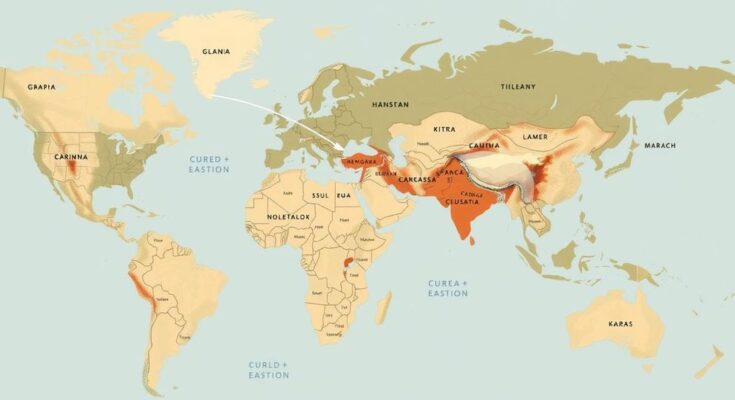The Trump administration plans to impose new U.S. entry restrictions targeting countries such as Afghanistan, Pakistan, and several others due to security concerns. This follows an Executive Order aimed at reviewing security vetting processes. Advocacy groups fear severe impacts on refugees, especially Afghans, while critics highlight existing vetting measures as adequate.
The Trump administration is poised to implement new entry restrictions on individuals from Afghanistan, Pakistan, Iran, Libya, Somalia, Sudan, Syria, Yemen, Chad, North Korea, and Venezuela. This proposal arises from an Executive Order signed on January 20, which mandates federal agencies to evaluate countries based on their security screening and vetting capabilities. A forthcoming announcement will clarify which nations will be affected and the extent of the restrictions, which may include partial or full suspensions of admissions.
During President Trump’s first term, the administration enacted multiple travel bans starting in 2017, initially targeting various countries to address national security concerns. The policy faced substantial backlash, being labeled a “Muslim Ban” for its focus on predominantly Muslim countries. Despite legal challenges, the U.S. Supreme Court upheld the third iteration of the ban in 2018, affirming presidential authority in national security matters.
While the final roster of restricted countries remains unconfirmed, Afghanistan and Pakistan are reportedly under evaluation. Advocacy groups, such as the International Refugee Admissions Project (IRAP), express grave concerns that these restrictions could severely impact Afghan refugees, including individuals holding Special Immigrant Visas (SIV), who are fleeing from Taliban oppression.
Pakistan’s potential inclusion in the ban is prompted by security issues and perceived weaknesses in its vetting protocols, raising alarms for many Pakistani nationals seeking entry to the U.S. Current estimates suggest that thousands could be affected by these new travel limitations.
The response to the possible revival of these travel bans has been overwhelmingly critical. Civil rights organizations, like the American Civil Liberties Union (ACLU), have decried the proposal, asserting it would infringe on rights and freedoms. Moreover, critics contend that both the State Department and the Department of Homeland Security (DHS) already maintain rigorous vetting processes, rendering further restrictions unwarranted.
Under the Executive Order, the State Department and DHS have a 60-day timeline to finalize the list of countries potentially facing travel restrictions. As the deadline nears, officials are expected to make an announcement soon. For ongoing updates, individuals are encouraged to monitor the U.S. Department of State and the Department of Homeland Security’s official websites.
The Trump administration’s potential new entry restrictions could significantly affect travel from Afghanistan, Pakistan, and several other nations marked by security concerns. Advocacy groups warn that these measures may endanger refugees, especially those from Afghanistan, while civil rights organizations argue that existing vetting procedures are already sufficiently strict. An official announcement regarding the specific countries will be forthcoming, with critical implications for many seeking entry into the United States.
Original Source: www.travelandtourworld.com




